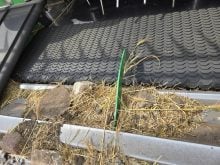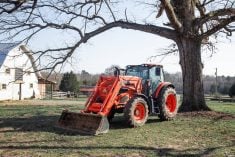A genetically modified crop that recently gained Canadian regulatory
approval is at the centre of a dispute between two of the world’s
biggest seed developers.
On May 4, Monsanto filed a patent infringement lawsuit against DuPont, the parent company of Pioneer Hi-Bred International Inc.
Monsanto alleges Pioneer unlawfully used its Roundup Ready trait in
its new herbicide tolerant Optimum GAT soybeans, a crop that received
Canadian regulatory approval on Sept. 1.
“As the saying goes, imitation is the sincerest form of flattery,”
Read Also

Canola support gets mixed response
A series of canola industry support measures announced by the federal government are being met with mixed reviews.
said Hugh Grant, Monsanto’s chief executive officer, in a news release
announcing the lawsuit.
“However, unlawfully taking technology is neither imitation nor flattery, it is unethical and wrong.”
DuPont has filed a counterclaim saying that the patents relating to
Monsanto’s Roundup Ready soybeans were invalid. DuPont is seeking
relief under U.S. anti-trust laws for what it alleges is Monsanto’s
scheme to unlawfully restrict competition.
“Monsanto has a long history of using litigation and aggressive
tactics to preserve their monopoly and attempt to intimidate customers,
seed partners and competitors,” said James Borel, DuPont Group
vice-president.
Monsanto claims DuPont broke a technology licensing agreement signed
between the two companies in 2002 that gave DuPont the right to use
Monsanto’s Roundup Ready gene in Pioneer’s seeds but prevented DuPont
from combining the trait with its own glyphosate tolerant products like
Optimum GAT.
DuPont has already been found guilty of breaching a previous licence
by improperly using Monsanto’s patented YieldGard Corn Borer trait.
In a detailed explanation about the latest lawsuit, Monsanto provides a time line.
It shows Optimum GAT was originally planned as a standalone
technology that would replace Monsanto’s Roundup Ready trait. But in
2009, Pioneer’s soybean research director said that the Optimum GAT
technology posed an “unacceptable risk to farmers” and that it planned
to stack the trait with Roundup Ready technology.
“Rather than tell the truth about its failed product, DuPont pirated
Monsanto’s technology,” said Scott Partridge, Monsanto’s deputy general
counsel, in a June 16 news release.
DuPont counters that Optimum GAT soybeans that include the Roundup
Ready trait are better products and its customers should have the right
to plant them.
“On this issue, we will stand with American farmers and fight
Monsanto’s efforts to deny them access to competitive products,” said
Borel.
Monsanto said it has a number of successful licensing agreements
with companies like BASF, Bayer CropScience and Dow AgroSciences that
respect patents and contractual agreements.
“DuPont’s claim is baseless and a way of diverting attention from
the fact that it was forced to renege on its vision of a new $200
million standalone competitor to Roundup Ready,” said Partridge.
The lawsuit was filed in federal court in St. Louis, Missouri. No trial dates have been set.
– PRATT















